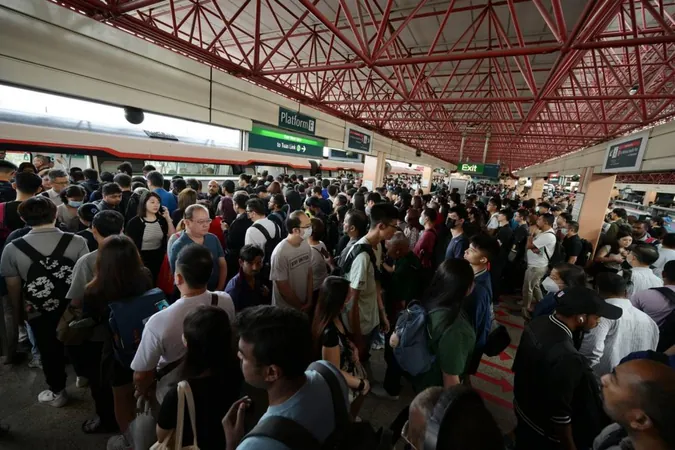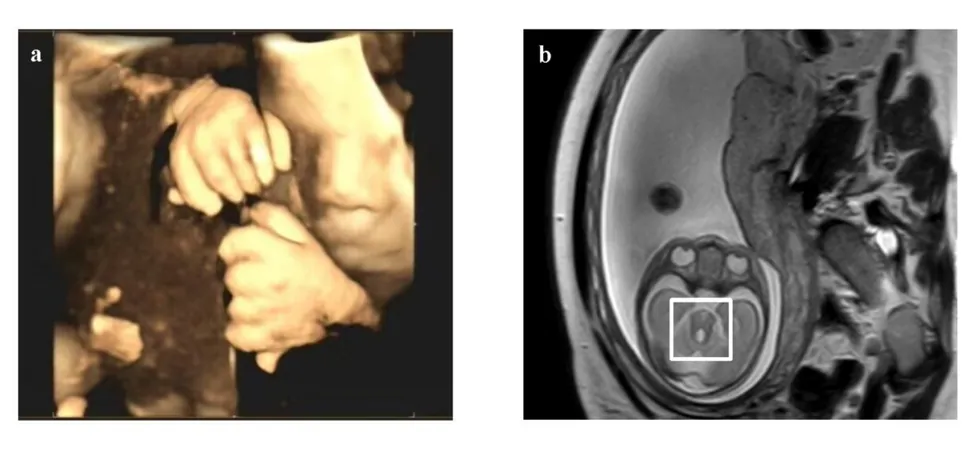
2024 in Review: Transport Trials and Triumphs, What Lies Ahead in 2025?
2024-12-26
Author: Yu
**SINGAPORE** – The transport landscape of Singapore weathered significant challenges in 2024, headlined by incidents and developments that have shaped public confidence and the future of transit. From fatal turbulence on flights to major rail breakdowns that left millions stranded, the year was anything but smooth.
In a recent interview, Transport Minister Chee Hong Tat reflected on the year, stressing the difficulties faced by both the government and the commuters. Here’s a rundown of the five most significant transport stories from 2024 and an insight into what 2025 is set to bring.
1. The SimplyGo Debacle
The year kicked off with a controversial proposal to phase out older transit cards in favor of the SimplyGo system by June. The quick backlash from commuters forced the government to delay this plan, incurring an unexpected cost of $40 million to maintain the old system until at least 2030. The authorities failed to appreciate user demands for visible fare transactions at gates, a feature unfeasible with the new system. The Land Transport Authority (LTA) is actively working on addressing these technical shortcomings, enhancing user experience and features for the SimplyGo system.
2. Flight SQ321 Tragedy
A somber moment in air travel occurred in May with Singapore Airlines’ Flight SQ321, which encountered unprecedented turbulence over Myanmar, resulting in the death of a 73-year-old passenger and many injuries aboard. Reports revealed that passengers were hurled against the ceiling due to sudden shifts in gravitational forces, leading to critical injuries. Investigations into the incident are ongoing, spotlighting the dangers of in-flight turbulence and the legal ramifications for the airline.
3. Devastating Oil Spills
June unfolded with chaos as 400 tonnes of fuel seeped into Singapore’s southern waters following a collision between a dredging boat and a stationary bunker vessel. This spill not only marred local coastlines but also affected surrounding regions, prompting extensive cleanup efforts that involved over 1,000 workers. As scrutiny intensified regarding the government's response, subsequent smaller spills later in the year further aggravated the situation, particularly an incident involving Shell that released 30-40 tonnes of oil.
4. East-West Line Crisis
Disruptions shook the confidence in Singapore's rail network, most notably during a six-day breakdown of the East-West Line in late September. This affected approximately 2.6 million passengers and required extensive manpower to restore services. The LTA has launched investigations alongside an advisory panel of experts to delve into these failures, ensuring that lessons are learned to prevent future incidents.
5. Transport Improvements Amidst the Chaos
Despite the turmoil, there were notable strides in transport development. The opening of the Thomson-East Coast Line Stage 4 in June considerably boosted public transport infrastructure, increasing ridership figures significantly. Additionally, the government revealed a substantial $900 million plan aimed at enhancing public bus services over the next eight years, introducing new routes and increasing trip frequencies.
Looking Forward: Changes on the Horizon in 2025
As 2025 approaches, several noteworthy initiatives and regulations are set to take effect:
1. Diesel Vehicle Ban:
A ban on new diesel cars and taxis will commence, aligning with Singapore’s commitment to cleaner transportation by 2030, which mandates all new cars to be eco-friendly.
2. Regulatory Reviews:
The government will finalize two key reviews affecting the taxi and ride-hailing sector, aiming to create a balanced environment for drivers and services.
3. Changi Airport Terminal 5 Construction:
After delays due to the pandemic, construction of Terminal 5 at Changi Airport will finally commence, aiming to increase airport capacity to meet rising travel demands.
4. Pedestrian Safety Enhancements:
New regulations on personal mobility devices are expected, addressing public concerns over their misuse, including speed limits and size restrictions.
5. Increased Certificates of Entitlement (COEs):
Starting February, the government will introduce up to 20,000 new COEs across various vehicle categories, aimed at stabilizing the vehicle population and addressing the previously volatile supply of COEs.
As Singaporeans navigate a year mingled with challenges and advancements in transportation, the government prepares to tackle lingering issues while embracing future change. The road ahead will require strategic planning and continuous collaboration between authorities and the public to build a more resilient and reliable transport sector.





 Brasil (PT)
Brasil (PT)
 Canada (EN)
Canada (EN)
 Chile (ES)
Chile (ES)
 España (ES)
España (ES)
 France (FR)
France (FR)
 Hong Kong (EN)
Hong Kong (EN)
 Italia (IT)
Italia (IT)
 日本 (JA)
日本 (JA)
 Magyarország (HU)
Magyarország (HU)
 Norge (NO)
Norge (NO)
 Polska (PL)
Polska (PL)
 Schweiz (DE)
Schweiz (DE)
 Singapore (EN)
Singapore (EN)
 Sverige (SV)
Sverige (SV)
 Suomi (FI)
Suomi (FI)
 Türkiye (TR)
Türkiye (TR)